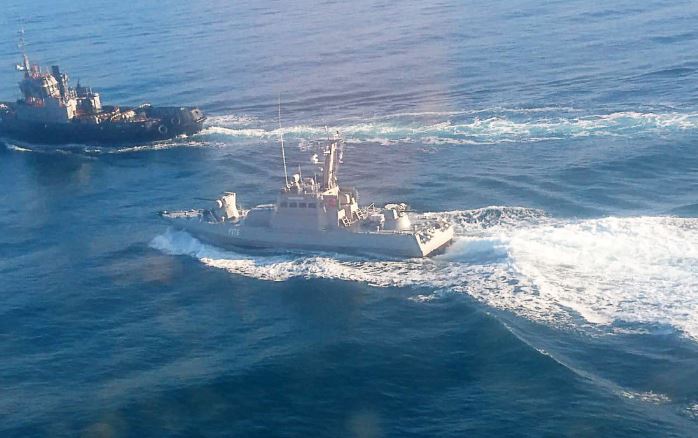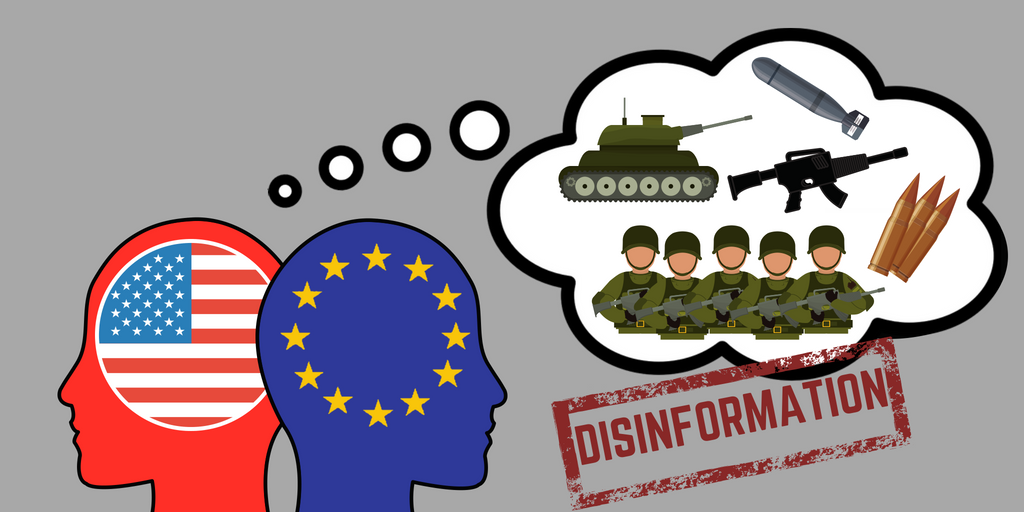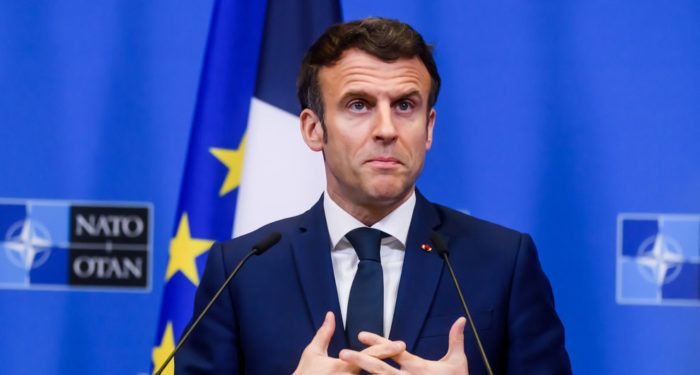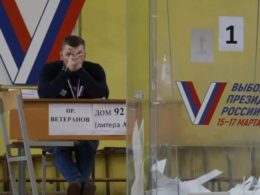In hindsight, it should have been clear that the Russian Federation once again committed military aggression against Ukraine in the Sea of Azov to meddle with the 2019 Ukrainian presidential election and project Russian global power before the G20 Buenos Aires meeting. Thus, it is no wonder the Kremlin continued to wage its hybrid warfare regionally, namely in the Czech Republic and Hungary via local pro-Russian media. In Hungary, the Kremlin’s anti-Ukrainian narratives could further help the pro-Russian Hungarian government’s anti-sanctions diplomacy and stance by falsely claiming Kyiv is just as responsible for the military standoff in Eastern Ukraine as Russia.
Read more: Russian attack on Ukrainian ships: who has a right to do what in the Azov Sea
Czech President Milos Zeman is another pro-Russian leader who could serve as an important amplifier of pro-Kremlin narratives, as he has done in the past (for example during the debate about the origin of the nerve agent used to poison ex-GRU officer Sergei Skripal).
The recent disinformation attack against Ukraine could be extended successfully to both countries mainly through the roughly 200 locally operated nationalist and/or pro-Russian new media pages, Facebook accounts that have been disseminating anti-West, pro-Kremlin, and anti-Ukrainian messages in local languages since 2014.
In the case of Hungary, some of the mainstream media also participated in this process. On the contrary, in the Czech Republic, these pro-Russian narratives did not resonate in the mainstream media and their outreach remained limited to the fringe platforms.
Russian narratives in the mainstream media
Most of the articles present in the Hungarian independent and pro-government mainstream media painted an objective and accurate picture of the Kerch incident, citing the statement of Minister of Foreign Affairs Péter Szijjártó supporting Ukraine’s “territorial integrity and sovereignty.” However, pro-government mainstream media still disseminated two explicit pro-Kremlin narratives due to the fact that the propagandistic, highly centralized media conglomerate under government control closely follows the pro-Russian diplomatic stance of the Orbán administration.
One of the narratives put forward by pro-government media detailed the Ukrainian leadership and President Poroshenko’s domestic interests in maintaining the conflict with Russia before next year’s election, a view expressed by the main pro-government daily Magyar Idők, the main state-run news portal Híradó, and the online news site 888.hu. In fact, 888.hu, founded by the closest informal advisor of PM Orbán, Árpád Habony, bluntly stated that “Ukraine provoked the Russians in order to limit the media and stop protests” before the elections. Still, the most pro-Russian and anti-Western narrative was presented in the show of Zsolt Bayer – a founders of Fidesz and a well-known conspiracy theorist and journalist, who previously attributed the killing of Boris Nemtsov to a “jealous Ukrainian girlfriend” – on Echo TV that accused the West of keeping Poroshenko in power to stoke Russophobia, so he is deliberately provoking Russia as a result.
Read also: Russian wave of disinformation from the Azov Sea
Czech mainstream media dedicated quite significant attention to the Kerch incident and consequent developments. Several news websites covered events online and this topic even made its way to the tabloids in which political issues usually remain on the sidelines. The tone of the debate was significantly influenced by the balanced and factual reporting of the Czech News Agency, which serves as a primary source for most of the mainstream media (especially when it comes to international events). Even though it is possible to say that the coverage of the incident in mainstream media was balanced and factually correct, the overall narrative depicted the incident as an example of Russian aggressivity (articles describing Russian military build-up in Crimea) or irresponsibility (articles informing about the fact that Russian president refused to communicate with his Ukrainian counterpart after the event). These views were also supported by interviews with various experts often connecting the incident with the declining popularity of Russian president Vladimir Putin, who might try to divert attention away from domestic problems. Pro-Russian narratives appeared in the mainstream media mainly in the form of quotes from Russian officials (such as president Vladimir Putin or Minister of Foreign Affairs Sergey Lavrov). Only a few articles echoed Russian arguments and they usually appeared in less prominent media outlets (such as blogs or opinion sections). President Zeman restrained his comments about the incident to a vague statement that he supports the approach of German Chancellor Angela Merkel, who (at the time) urged to ease the tensions between Russia and Ukraine.
Read also: Condemnation and “concerns”: world reaction to Russia’s attack on Ukrainian ships
The disinformation campaign waged by the Czech and Hungarian fringe media
The main Hungarian and Czech pro-Russian fringe media under examination clearly took part in the Russian hybrid warfare effort in a coordinated way to destabilize Ukraine and the region. The number of articles covering Ukraine suddenly shot up on the day of the incident and stayed at a high level until early December, as seen on the graph presenting Facebook data below.
The Czech Facebook pages mentioning the Kerch crisis most often were Sputnik, České národní listy, EuroZprávy, Svět kolem nás and AC24. However, the topic was mentioned on almost every Czech fringe website at least once.
Right after the incident, the Czech pro-Russian fringe media suggested that Ukraine was responsible for the crisis. The website Vlastenecké noviny for example propagated this narrative, also pushed by Sputnik CZ, when claiming that Ukrainian vessels entered Russian waters in order to provoke the conflict. This claim was developed further by quoting RT’s interview with a captured Ukrainian sailor. Skrytá Pravda also elaborated on the provocation rhetoric and suggested that Ukraine wants to start a war with Russia. This narrative has appeared across many fringe media outlets, but the United States was generally held accountable for the incident. Another theory claimed that Ukrainian vessels headed to the Crimean bridge and wanted to destroy it, which would have been followed by an offensive in the Donbas region. Another narrative (firstly introduced by Sputnik CZ) suggested that Ukrainian president Petro Poroshenko is responsible for the crisis. Two supposed motivations were presented to the audience: his ambition to strengthen his political position or to sabotage the Donald Trump-Vladimir Putin meeting during the G20 summit. The situation was also used by several platforms to attack the Czech mainstream media supposedly censoring information about the incident. Fringe webisodes also frequently quoted Russian official sources – Sputnik CZ served as an important original source of this content and so, it shaped the debate about whole incident to a certain extent. However, none of the narratives from fringe media got into mainstream media and judging by the number of interactions on Facebook articles about the Kerch incident were not too popular even among the these websites’ followers.

In contrast to the Czech Republic, the most active Hungarian fringe media are far-right and conspiratorial sites like Vilaghelyzete.com, HUN-News or balrad.ru. We also noticed the activity of the Hungarian speaking pro-separatist or “near-abroad” sites like the Kiállunk Novorosszija mellett – Support Donbas from Hungary or Kiállunk Belarusz mellett – Support Lukashenka from Hungary Facebook sites. When it comes to the reaction of the Hungarian fringe audiences, the narratives were driven more by far-right Hungarian sites based on the average number of interactions per fan.

Hungarian pro-Russian sites mainly echoed the Kremlin’s official communication by putting forward three main narratives. As a baseline, they denied the possibility of the Kerch incident being an act of Russian military aggression against Ukraine, instead the national Bolshevik Balrad.ru and the pro-Kremlin Orosz Hírek (Russian News) warned of the reckless “political gamble” President Poroshenko is playing to hold onto power before the elections. Three separatist and revisionist sites, the Hungarian-Serbian Brotherhood, the Kiállunk Novorosszija mellett - Support Donbas from Hungary and the Kiállunk Oroszország mellett - Support Vladimir Putin from Hungary mounted a concentrated effort to share the same article about Vladimir Putin stating that the incident was “provoked” by Kyiv to increase the popularity of President Poroshenko in the run-up to the 2019 Ukrainian elections. Some articles reiterated the Kremlin’s statements on the necessity of change in Ukrainian leadership because the current one is a “pro-war” government, not interested in a peaceful resolution of the conflict in the Black Sea or in Eastern Ukraine.

A third narrative accused Kyiv and NATO of preparing to launch a war, possibly a new world war, against Russia on the premise of the Kerch incident. Conspiracy sites claimed that the Kerch incident and arming Ukraine with lethal weapons was a “secret plot” by the USA to stoke Russophobia all around the world. One far-right site presented a rare but important Hungarian separatist article about Transcarpathia possibly returning to Hungary if Ukraine were to descend into chaos, as the Russian MFA predicted.
The spread of disinformation and pro-Russian narratives in Czech and Hungarian media immediately after the Kerch incident once again proved that the CEE information space remains an important area of Russian influence operations for international and local political reasons as well. In the Czech case, this is even more obvious because Sputnik CZ played a significant role in shaping narratives disseminated by other fringe websites. The influence of statements of Russian officials on Hungarian fringe media is maybe less visible, but equally significant. Nevertheless, it is important to point out that the impact of pro-Russian narratives remain limited to a number of platforms and it is difficult for them to find their way into the mainstream if it is immune to fake news, conspiracy theories. This is certainly the case in the Czech Republic, but less so in Hungary.


Jakub Merc, who is a Project Assistant at Prague Security Studies Institute working primarily on projects related to disinformation, contributed to the data analysis.
Disclaimer: the analysis was based on the framework of a project run by the GLOBSEC Policy Institute and supported by the National Endowment for Democracy
Read also:
- How Hungary became a weapon of Russian disinformation
- Ukrainian prosecutors publish reconstruction of Russian attack on Ukrainian ships in Black Sea
- Russian aggression in the Azov Sea has been ongoing since May 2018
- Russia takes 24 prisoners of war after attacking Ukrainian ships in Azov, televises “confessions”
- Russian attack on Ukrainian ships near Kerch Strait – full chronology





